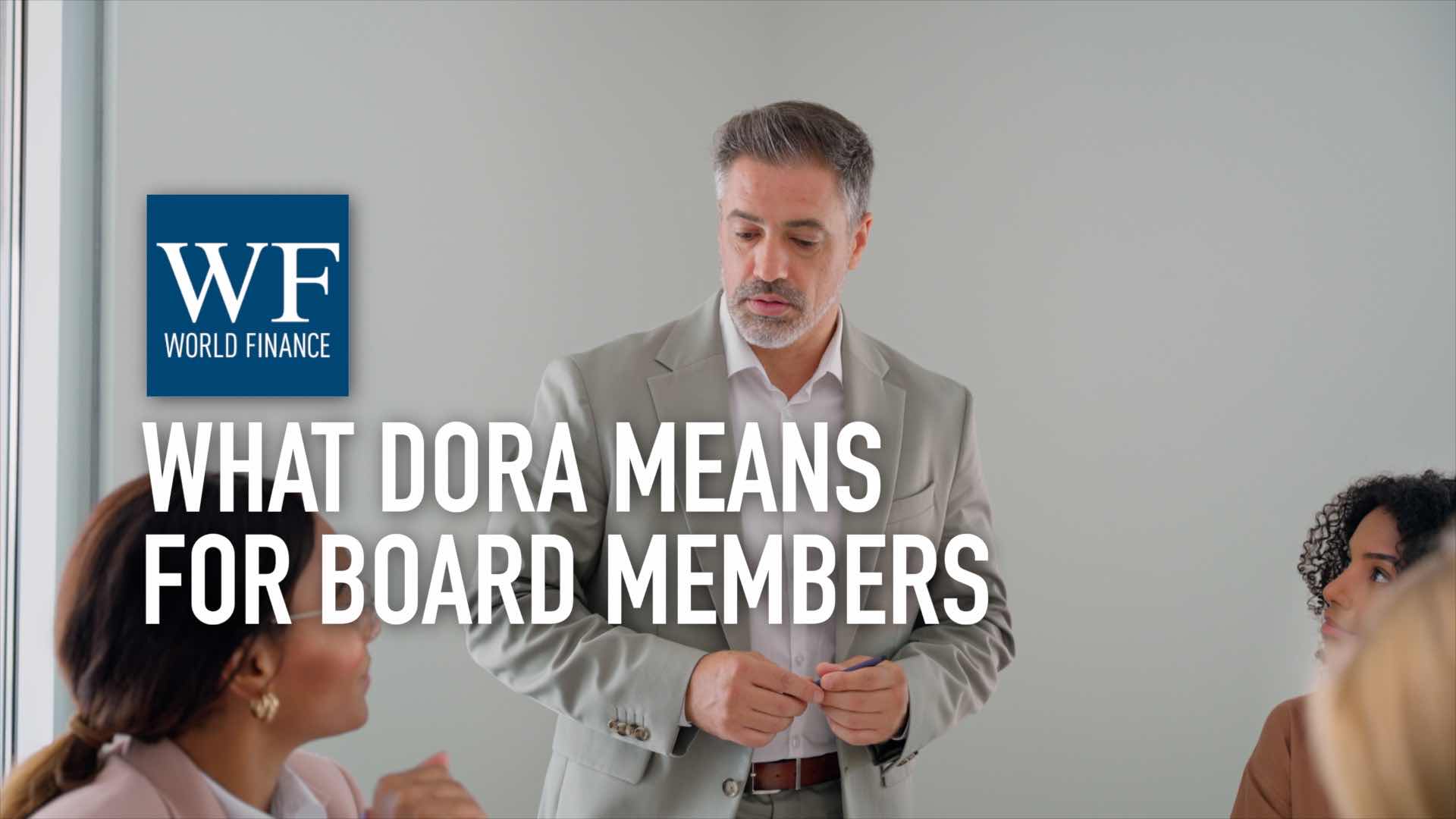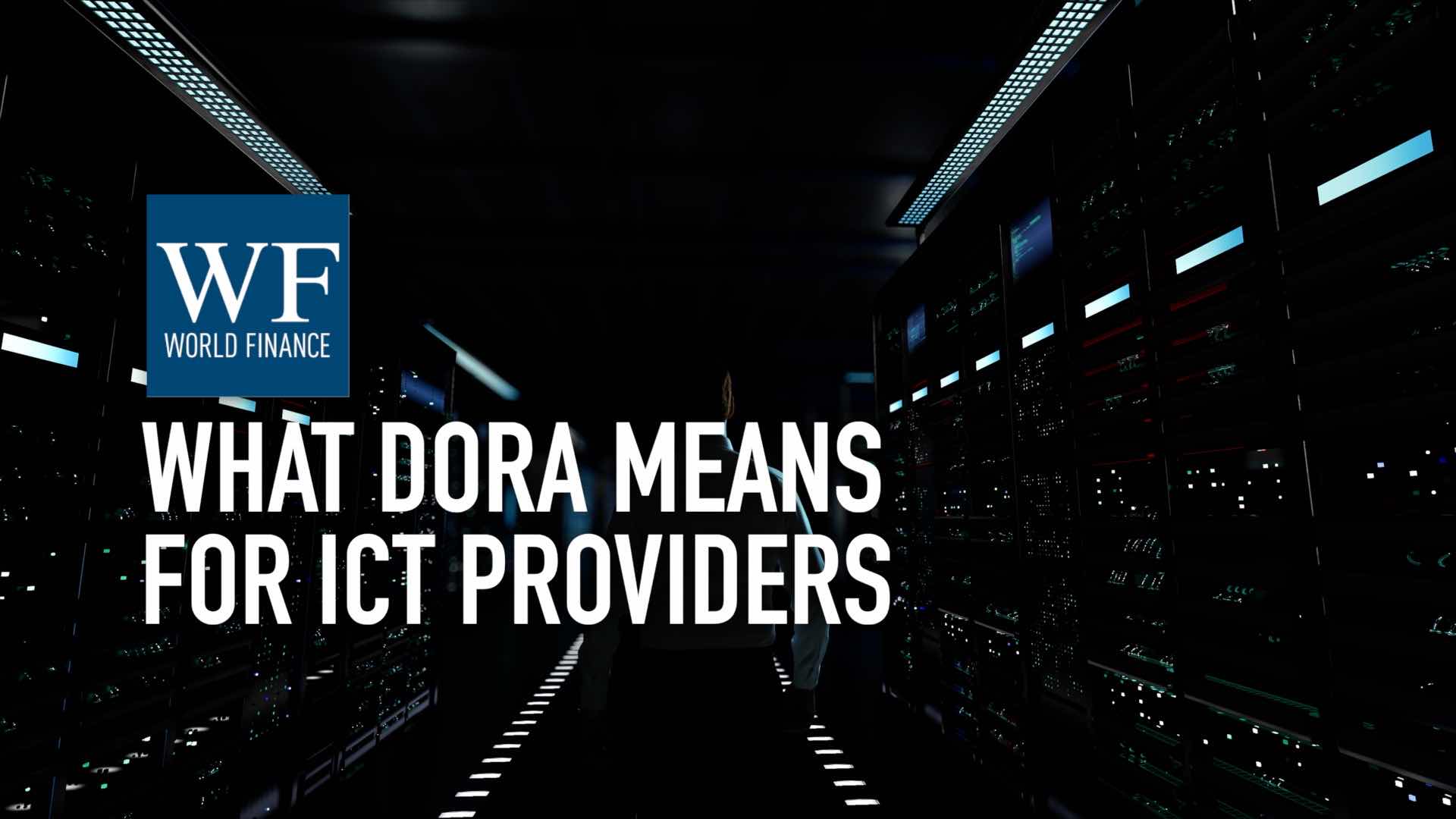Dr Hazim El-Naser, Thomas Langford, Anne De Pazzis on the As-Samra Wastewater Plant | SPC Samra | Video
World Finance interviews Jordan's Minister of Water and Irrigation Dr Hazim El-Naser, CCC's Group VP for Investment Thomas Langford, and Degremont's Deputy Head of BOT Anne De Pazzis, on the new As-Samra Wastewater Treatment Plant
Related:
Transcript
As-Samra Waste Water treatment plant is the largest of its kind in Jordan. It’s also the first project in the country to be built under a build, operate and transfer model. Dr Hazim El-Nasser from Jordan’s Ministry of Water and Irrigation joins Thomas Langford from CCC and Anne De Pazzis from Degremont, the sponsors responsible for the BOT model, discuss the advantages the project will have for the people of Jordan, and the way the country has benefited from commissioning the project as a public-private partnership.
World Finance: Your Excellency, the first phase of the project addressed, among other things, the problem of a severe water shortage in Jordan. How bad was this, and did As-Samra address this?
Dr. Hazim El-Nasser: Jordan is one of the most scarce-water countries worldwide, classified by international indices as number 3. By constructing this treatment plant, Jordan was able to reallocate more freshwater from irrigated agriculture towards the most urgent needs of the domestic water sector, and by releasing more freshwater.
“As-Samra Waste Water Treatment Plant was the first build-operate-transfer PPP in Jordan”
World Finance: How has the construction of the original plant helped to address environmental and health concerns in Jordan?
Dr. Hazim El-Nasser: By the completion of this treatment plant, we were able to connect more households to the public sewage networks and thereby enhancing environmental and health standards. Most important is the protection of our precious underground water resources from pollution through septic tanks.
World Finance: Why was the plant expanded at this time?
Dr. Hazim El-Nasser: As you might know, Jordan is in the troubled Middle East, and a lot of people influx to Jordan as a result of regional conflict. On top of that, Jordan is witnessing economic development and a high population growth rate, which makes the need for additional freshwater services for households.
World Finance: How has Jordan benefited from commissioning the project from a public private partnership?
Dr. Hazim El-Nasser: As-Samra Waste Water Treatment Plant was the first BOT in Jordan, and the first in the region, and by doing this BOT, we were able to attract more private sector participation into water and infrastructure projects, and other sectors, energy infrastructure and so on. This was very important, especially in countries going under structural and physical reforms; they need such a financing so they will have less borrowing, especially if they have limitations on their borrowing capacity.
“The timing of the financing was difficult: the markets in Europe, plus the situation in Jordan where the deficit was increasing”
World Finance: Well Thomas, over to you now, and as a sponsor what are the main financing and structuring issues for this project?
Thomas Langford: Well, this expansion was built on the existing plant. BOTs and PPPs are very difficult concepts to implement. In this particular case, we had to complement the inclusion of MCC and their requirements in the project. Secondly, the timing of the financing was difficult. The markets in Europe, because of the financial crisis, plus the situation in Jordan where the deficit was increasing, the country was suffering because of the reduction of the gas supplies from Egypt, made it somewhat difficult, and we had an overall constraint on affordability.
World Finance: Well what financing mechanisms did you use to deal with these issues?
Thomas Langford: We decided to approach it as a brownfield project and combine the existing plant together with the expansion. This allowed us to use the continuing operations of the plant, help in the securitisation of some of the payments that the sponsors were making. It allowed us to leverage the existing plant, which reduced the equity requirements for the new plant.
World Finance: Anne, this is the first BOT project for MCC, so what challenges did you face in its implementation?
Anne De Pazzis: Challenges arose in the course of the discussions. The first reason is that MCC was undertaking its first BOT co-financing with the private sector in this project, and they were involved in all aspects of the negotiation of all documents. Secondly, the expansion was a negotiated project because the original agreement provided for direct negotiation between MWI and the project company as an anticipation for a needed expansion of the treatment plant. Therefore, MCC had to develop thorough cost analysis methodology to assess our proposal and ensure that the price is reasonable. Finally, MCC requires strict adherence to its conditions and requirements, as well as to international standards. In that respect, MCC imposed very strict conditions on the EPC contractor, such as trafficking persons, and on the operator as well when it comes to sludge management.
“If affordability is a must for such long term contracts, acceptability is also something of importance”
World Finance: Well can the As-Samra model act as a template for future developments?
Anne De Pazzis: It is a reference, from an environmental standpoint, renewable energy is produced from biogas capture and hydraulic energy. It is self sufficient at roughly 95 percent, and as part of the expansion agreement the parties have also agreed to improve sludge management practices and pursue viable reuse options for sludge. Secondly, the viability gap funding approach, through the contribution of MCC, was absolutely critical to the development and the expansion. Through this contribution the project is much more affordable for the government of Jordan and financially attractive to the banks and the sponsors.
And lastly, if affordability is a must for such long term contracts, acceptability is also something of importance. In the case of As-Samra, effective stakeholder engagement has occurred from the early stages of the project. Since its origin, throughout the current operation of the existing plant, as well as during the development of the expansion. And I strongly believe that this inclusive approach has benefited the project and all parties in the end.
World Finance: Your Excellency, Ann, Thomas, thank you.
Dr Hazim El-Naser, Thomas Langford, Anne De Pazzis: Thank you.

 What the Digital Operational Resilience Act means for board members and CEOs
What the Digital Operational Resilience Act means for board members and CEOs What the Digital Operational Resilience Act means for third party ICT providers
What the Digital Operational Resilience Act means for third party ICT providers
